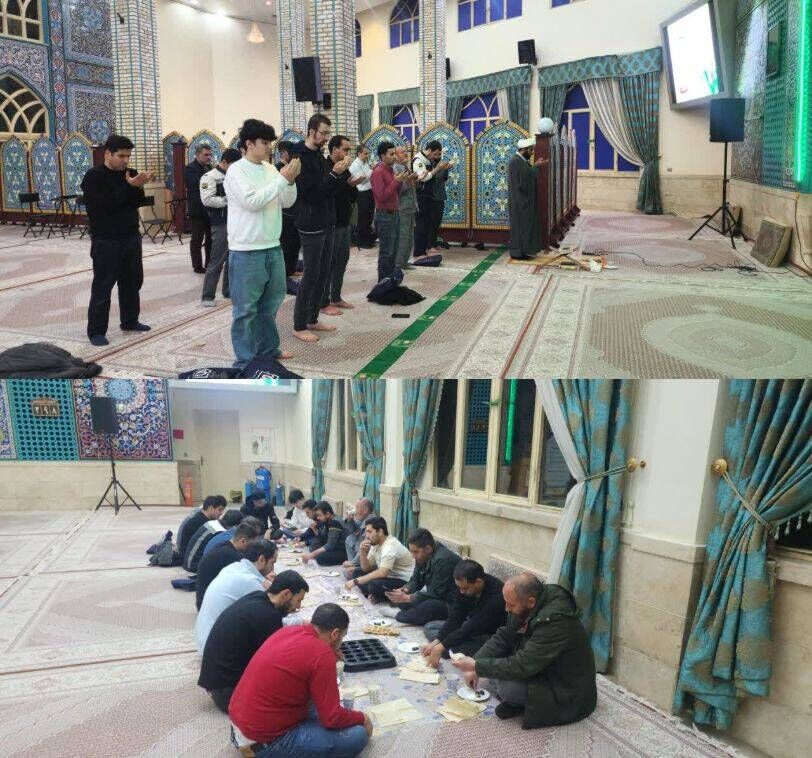Libyan Haftar forces ‘key fuel supplier’ to Sudan's RSF on behalf of UAE
Libyan Haftar forces ‘key fuel supplier’ to Sudan's RSF on behalf of UAE

Libyan commander Khalifa Haftar’s forces have been providing smuggled fuel to the Sudanese paramilitary Rapid Support Forces (RSF) at the request the United Arab Emirates, a report by US-based watchdog The Sentry said on Thursday.
Investigating how fuel smuggling in Libya has escalated into “a major national crisis” that costs the North African country around $6.7bn per year, the report shows how the illegal activity is also enabling the deadly conflict in neighbouring Sudan between the Sudanese army and the RSF.
According to investigative organisation The Sentry, Haftar "has been a key fuel supplier to the RSF" since the start of the Sudanese civil war in April 2023, reflecting his "deep loyalty to the Emirati government".
The commander, who dominates eastern Libya, has been repeatedly accused of supplying weapons and fuel to the RSF on behalf of the UAE, a key backer of the paramilitaries, allegations that both Abu Dhabi and Haftar deny.
The RSF has been accused of committing systematic atrocities, including murder, rape and sexual violence against civilians, most recently when they took over the city of el-Fasher, completing their control of the vast Darfur region in western Sudan.
“Persistent flow of diesel and gasoline has enabled the RSF’s mobility in Darfur and, therefore, its tactical operations there,” the report said.
By providing fuel and other support to the RSF, the Haftar family has also “tightened its command structure and strategic control in southeastern Libya”, it added.
After a Nato-backed revolt toppled and killed longtime leader Muammar Gaddafi in 2011, Libya has been divided between a UN-recognised government in the west, led by Prime Minister Abdul Hamid Dbeibah in Tripoli, and Haftar's administration in the east.
“Because of the UAE’s extensive ideological, diplomatic, financial, and political support for the Haftar family since 2014, the Emirati government occupies a privileged position in the eyes of Haftar’s forces, leaving them beholden to Abu Dhabi,” the report said.
Haftar's youngest son Saddam, who leads his father’s Libyan Arab Armed Forces (LAAF), is identified as the primary force behind the surge in fuel smuggling.
He travelled to southeastern Libya's Kufra in April 2023 "to oversee efforts to secure fuel supplies" to the RSF, The Sentry said, adding that Haftar's forces increased "manpower and equipment" in the region to ensure "uninterrupted shipments of fuel and other goods across the border".
"Beyond supervising the flow of fuel, Saddam Haftar's forces also coordinated occasional arms transfers to the RSF in Darfur as part of a broader support policy that included regular deliveries of ammunition," the report added.
In addition to the RSF in Sudan, the investigation identifies Russia as another of the main beneficiaries of Libya’s illegal fuel trafficking, which enables Moscow’s military activities in sub-Saharan Africa.
Russia’s military support is seen as essential in maintaining Haftar’s dominance over eastern and southern Libya.
$20bn in lost revenue
Fuel smuggling has been a long-standing issue in Libya, enabled by the country’s inflated fuel subsidy programme.
Initially set up by Gaddafi in the early 1970s, the scheme aimed at reducing costs for all domestic energy users by guaranteeing a sale price of $0.03 per litre of refined petroleum product.
‘The surge in fuel smuggling means that a larger share of Libya’s oil wealth is stolen, hurting the legitimate economy and worsening hardships for ordinary citizens’
- The Sentry
However, the system has been widely abused, as many recipients - including members of the security services - inflate their requisitions. To answer their demand, the National Oil Corporation, which has little oil refining capacity, imports refined fuel from abroad.
Instead of being consumed in the Libyan market, these large quantities of foreign-refined fuel are then resold abroad for private profit.
By late 2024, the fuel imports had surged from about 20.4 million litres per day in early 2021 to a peak of more than 41 million litres per day, way beyond real domestic needs.
According to The Sentry, more than half of the imported fuel has been “siphoned off” by criminal networks.
In the early 1980s, Libya’s fuel was already being smuggled into neighbouring countries like Tunisia and Chad, the report explained. The illegal traffic was often deliberately overlooked by Gaddafi as a means of placating some peripheral communities engaged in it.
However, when the current government in Tripoli took office in March 2021, Libya witnessed a surge in fuel smuggling, as Dbeibeh's authorities sought to "buy peace by channelling large amounts of public wealth to armed factions capable of disrupting stability", chiefly Haftar's forces.
At home, the economic consequences are badly felt by Libyan households.
The 2022-2024 surge in fuel smuggling has cost the Libyan population about $20bn in lost revenue, the report said, while those funds are “urgently needed for health services, household essentials, infrastructure, education and other social programs”.
“The surge in fuel smuggling means that a larger share of Libya’s oil wealth is stolen, hurting the legitimate economy and worsening hardships for ordinary citizens,” the Sentry said, citing fiscal imbalance, currency depreciation, price inflation, as well fuel shortages and risks of electricity outages.
“Amid the sustained kleptocratic boom that Libya has experienced since the end of its civil war in 2020, fuel smuggling quickly rose to become the most lucrative scheme, […] a multi-billion-dollar enterprise pursued by the country’s incumbent rulers - with international backing - that can further derail the nation’s legitimate economy,” the report said.
Despite a series of pledges from Libyan leaders to end or reform the fuel subsidies, the surge in smuggling would not have been possible without their “tacit acceptance”, contributing to entrenching their power, both in the east and the west, and thereby further undermining any chance of reunification.













